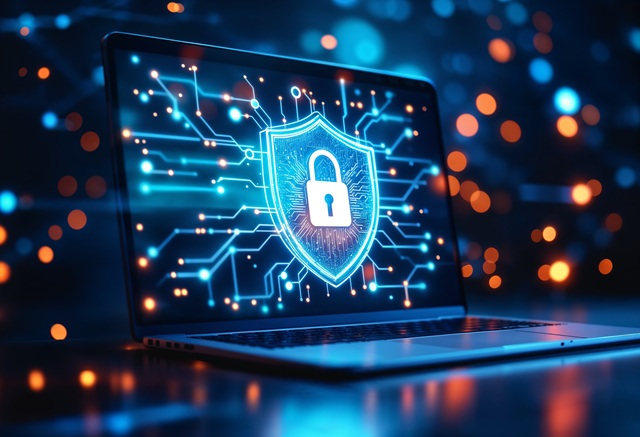How to Strengthen Your Digital Security Against Emerging Threats

Have you ever wondered how safe your online world really is? Every click, message, or download could open the door to a hidden danger if you are not careful. Cybercriminals are getting smarter, and their attacks are harder to spot.
But the good news is that you can stay ahead of them. By reading this guide, you'll learn how to strengthen your digital security, understand new threats, and use smart threat prevention steps to protect your personal information, money, and peace of mind.
xDigital Security Matters More Than Ever
Digital security is not just for tech experts anymore. Every person who uses a phone, computer, or smart device is a target. Hackers don't just go after big companies; they often aim for regular people because it's easier to trick someone than to break a strong system.
Think about how much of your life is online-your photos, emails, bank information, and even your location. Good security keeps your private information safe, reduces your risk of identity theft, and helps you browse the internet with confidence.
Understanding Emerging Online Threats
The world of online crime is always changing. Phishing emails, fake websites, and malware are some of the most common traps people fall into. These scams often look real, but their goal is to trick you into giving away your passwords or personal details.
Another rising danger is ransomware, a kind of malware that locks your files until you pay the attacker. Many victims panic and pay the ransom, but recovery can often be done safely with proper tools and planning. That's why learning about secure practices, backups, and Ransomware Recovery is so important for every internet user.
Building Strong Password Habits
A password is like the key to your digital home, so it needs to be strong. Avoid simple choices like your name, "123456," or the word "password." Instead, create long passwords with a mix of letters, numbers, and symbols.
A different password for each account might sound hard, but it's one of the most effective ways to protect yourself. A password manager can help you keep track of them safely. Also, update your passwords regularly, especially for accounts with sensitive data like banking or shopping apps.
The Role Of Two-Factor Authentication
Even strong passwords can be stolen, so adding an extra layer of protection is smart. Two-factor authentication, or 2FA, makes it much harder for attackers to get in. When you turn on 2FA, you'll need a code sent to your phone or email in addition to your password.
This extra step can stop hackers even if they already have your password. It may take a few more seconds to log in, but that small delay gives you a big boost in security. Many websites and apps offer this feature, so it's worth enabling wherever possible.
Safe Browsing Habits That Protect You
The way you browse the internet can either protect or expose you. Always check that websites start with "https" before entering personal information.
The "s" means the site has security encryption. Avoid clicking on random links, pop-up ads, or suspicious messages, even if they look real.
Be cautious when downloading apps or files. Only use trusted sources, such as official app stores. Cybercriminals often hide malware inside fake software. When you're unsure about a site or download, it's better to skip it.
Keeping Software And Devices Updated
Software updates are not just about new features-they often fix security holes that hackers could use. Always update your operating system, browser, and security tools when new versions become available.
Automatic updates can save you time and keep your system safe without extra effort. This small step helps close the door on known weaknesses that attackers love to exploit. It's an easy habit that can make a big difference in your protection.
The Importance Of Backups
Imagine losing all your photos, work, or personal files in an instant. That's what can happen if ransomware or system failure strikes. Backing up your data regularly prevents total loss.
Keep at least two copies of your important files-one online and one offline. If something goes wrong, you can recover your data quickly without paying a ransom or starting over. Good backups are your safety net in the digital world.
Recognizing And Avoiding Phishing Traps
Phishing scams are sneaky. They come as emails or texts that look official but lead to fake websites. Always look carefully at the sender's address and check for spelling errors or odd requests.
If you get a message saying your account is locked or you need to verify something, don't click the link. Instead, go directly to the company's official website to check. Thinking twice before clicking once can save you from big trouble.
Practicing Smart Social Media Habits
Social media is fun, but it's also where many people expose too much information. Avoid sharing your exact location, travel plans, or private details publicly. Hackers can use this data to guess passwords or target you with scams.
Adjust your privacy settings so only trusted people can see your posts. Be careful when accepting friend requests from people you don't know. Sometimes, fake profiles are made just to gather information.
Building A Culture Of Digital Awareness
Digital security is not a one-time task. By practicing safe habits every day, you train yourself to recognize risks faster. Whether you're checking an email, shopping online, or using cloud storage, a few extra seconds of caution can prevent serious problems.
Organizations, schools, and even families can build this awareness together. Regular conversations about threat prevention keep everyone on guard. The more people understand how attacks happen, the fewer victims cybercriminals can find.
Keeping Up With Security Tools And Technology
Technology is advancing fast, and new tools are created to help users stay protected. Antivirus software, firewalls, and encryption tools continue to improve. Using them correctly strengthens your defense.
You don't need the most expensive tools-just reliable ones that you update often. As threats evolve, so do protective solutions. Staying informed about new security options helps you adjust your habits and stay one step ahead of cybercriminals.
Stay Secure And Confident Online
The digital world can feel risky, but with the right habits, it doesn't have to be. Strengthening your digital security helps you take control of your privacy and protects everything that matters to you. When you use strong passwords, update your software, and stay alert to scams, you build a shield against online danger.
Your safety online starts with small choices made every day. Did this guide help you? Browse the rest of this section for more advice on a variety of topics.
Tags:
Image Credits: Freepik








